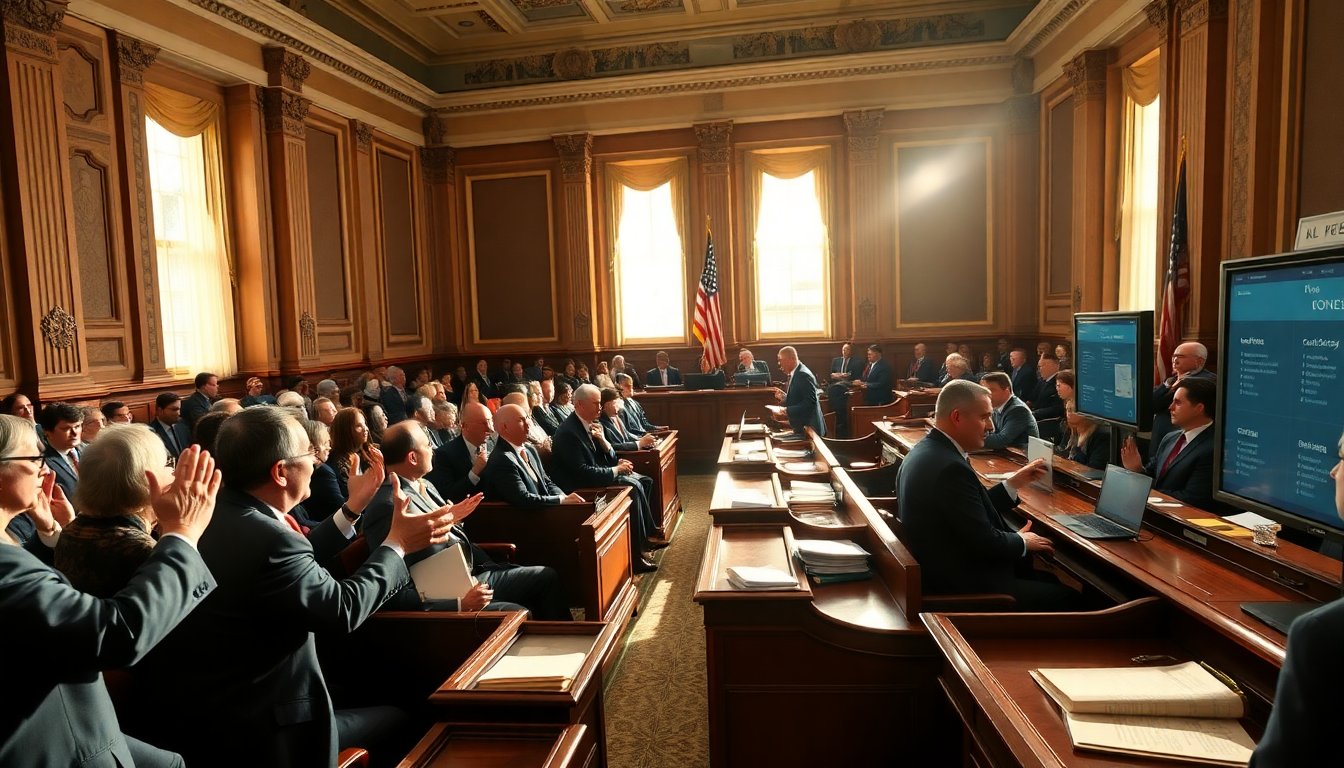Table of Contents
In a significant legislative move, the House of Representatives voted to release a comprehensive collection of investigative materials concerning the notorious case surrounding Jeffrey Epstein, the deceased financier implicated in heinous crimes. This decision aims to shed light on the extensive federal investigations and received overwhelming support from members across the political spectrum, with only one dissenting voice.
On Tuesday, lawmakers cast their votes, resulting in a strikingly one-sided outcome. With nearly unanimous approval, only Republican Representative Clay Higgins from Louisiana opposed the motion, highlighting a rare moment of unity in a body often divided over pressing social issues. Higgins’ dissent raises questions about his motivations and the broader implications of releasing such sensitive information.
The context of the House vote
The decision to unveil the Epstein files is rooted in a growing demand for transparency regarding the federal investigations into Epstein’s actions and his connections to influential figures. Epstein, who died in while awaiting trial on charges of sex trafficking, left behind a complex web of allegations and unanswered questions.
Lawmakers have emphasized the need for the public to understand the full extent of Epstein’s operations, including the alleged involvement of high-profile individuals. By releasing these documents, Congress aims to provide clarity and accountability in a case that has captured national attention and exposed significant systemic failures.
Implications of the lone dissent
Clay Higgins’ decision to cast a “no” vote amid a sea of support reflects a unique stance on the issue. While the majority of the House believes that public access to the investigation files is essential for justice, Higgins may have concerns about the potential consequences of such transparency.
His opposition could stem from a belief that the release of classified information may compromise ongoing investigations or lead to the vilification of individuals who have not been charged with crimes. Such perspectives highlight the delicate balance between the public’s right to know and the necessity of protecting the integrity of legal processes.
Alan Dershowitz’s controversial ties to Epstein
Among the many individuals associated with Epstein, attorney Alan Dershowitz stands out due to his high-profile representation of the financier. Having established himself as a skilled legal expert, Dershowitz has taken on cases that often place him at the center of public scrutiny.
Throughout his career, the lawyer has been involved in numerous high-stakes legal battles, including those of celebrities and politically charged figures. Notably, Dershowitz was instrumental in negotiating a controversial non-prosecution agreement for Epstein in 2006, which has since drawn criticism for its leniency and the deal’s implications.
Reactions and the road ahead
The decision to release the Epstein files, coupled with Higgins’ lone dissent, has sparked renewed debate about accountability in the justice system. As the public awaits the unveiling of these documents, the potential repercussions are still unfolding.
Many advocates for victims of abuse view this as a crucial step toward justice and healing. The hope is that transparency will not only honor the experiences of those affected but also prevent similar injustices in the future. Conversely, some caution against the rush to judgment, emphasizing that all parties involved deserve their day in court.
On Tuesday, lawmakers cast their votes, resulting in a strikingly one-sided outcome. With nearly unanimous approval, only Republican Representative Clay Higgins from Louisiana opposed the motion, highlighting a rare moment of unity in a body often divided over pressing social issues. Higgins’ dissent raises questions about his motivations and the broader implications of releasing such sensitive information.0


